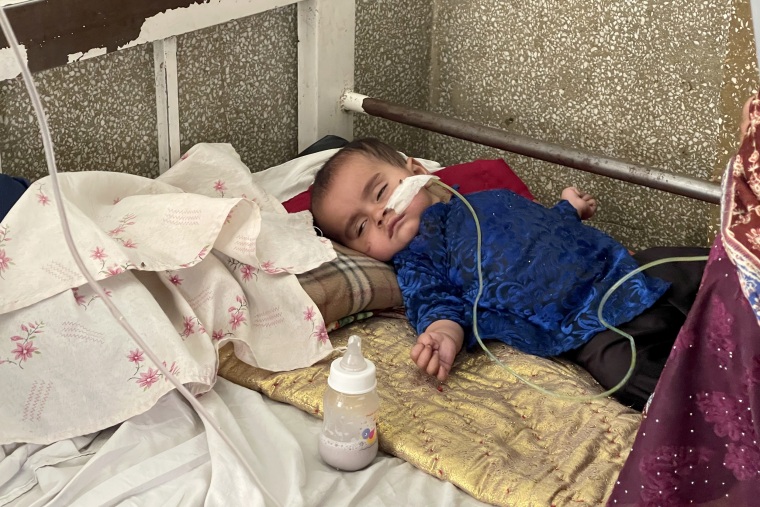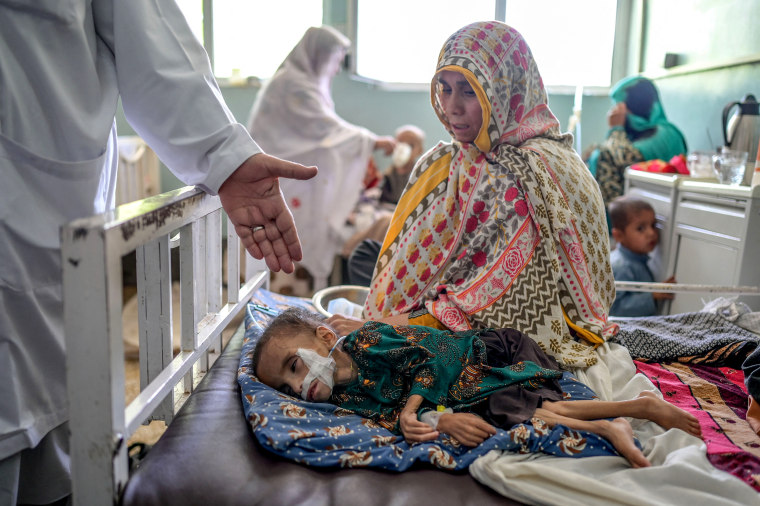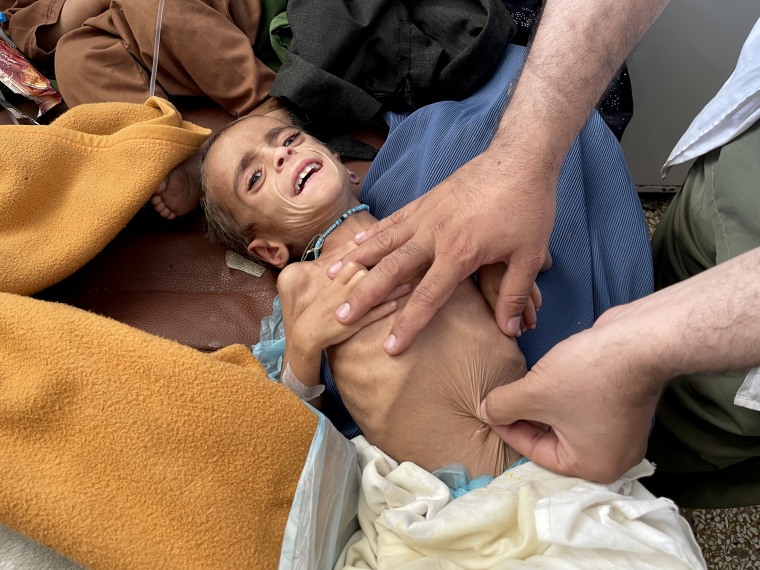Hunger is on the march in Afghanistan.
Recent photographs show the struggle for survival at an overcrowded hospital in the southern province of Kandahar, as desperately malnourished babies and children lie side by side and doctors race to treat them.
In one image taken Thursday, an emaciated child wearing a blue necklace appears to writhe and grimace. Lines etched on its face contrast with skin pulled tight over its ribs and shoulder bones. An adult twists the skin on the child's stomach.
In another, an infant is seen lying splayed out, eyes half closed and a feeding tube running from their nose.

For weeks, humanitarian organizations have been warning of a looming disaster as the Taliban struggles to feed the desperately poor and aid-dependent population.
Earlier this month, UNICEF sounded the alarm, saying that at least 1 million children are at risk of losing their lives to severe malnutrition.
And with 14 million people across the country facing acute food insecurity, millions of other children will suffer from severe malnutrition by the end of the year, the organization has warned.
And with winter fast approaching, humanitarian groups say they are facing a race against time to help families who lack access to safe water, nutrition and health services.

According to recent surveys conducted by the World Food Programme, the United Nations' food assistance branch, 95 percent of households in Afghanistan are not consuming enough food, with parents having to eat less and skip meals to feed their children.
“As more families struggle to put food on the table, the nutritional health of mothers and their children is getting worse by the day,” Hervé Ludovic De Lys, UNICEF Representative in Afghanistan, said in a statement on Oct. 5.
“Children are getting sicker and their families are less and less able to get them the treatment they need," he said, warning that "rapidly spreading outbreaks of measles and acute watery diarrhea will only exacerbate the situation.”
Meanwhile, hunger is not the only threat that children in Afghanistan face, with growing fears for the safety of religious and ethnic minorities who say they are facing persecution once again from the Taliban, while also being targeted in attacks by Islamic State Khorasan, or ISIS-K.
On Friday, a major explosion tore through a Shiite mosque in Kandahar during prayers, killing at least 33 people and wounding 73 others, Reuters reported, citing officials and provincial leaders.
A Taliban spokesperson acknowledged the blast to NBC News, but said they could not confirm the number of casualties.
So far, no group has claimed responsibility for the explosion. However, ISIS has a history of launching attacks against the country's Shiite Muslim minority.
The Taliban also have a history of persecuting the group, with hundreds of minority Shiite Hazaras being forced by militants to leave their homes in Daykundi province in recent weeks.
The incident also comes a week after ISIS-K took responsibility for an explosion that killed dozens of people at a Shiite mosque in Kunduz.

